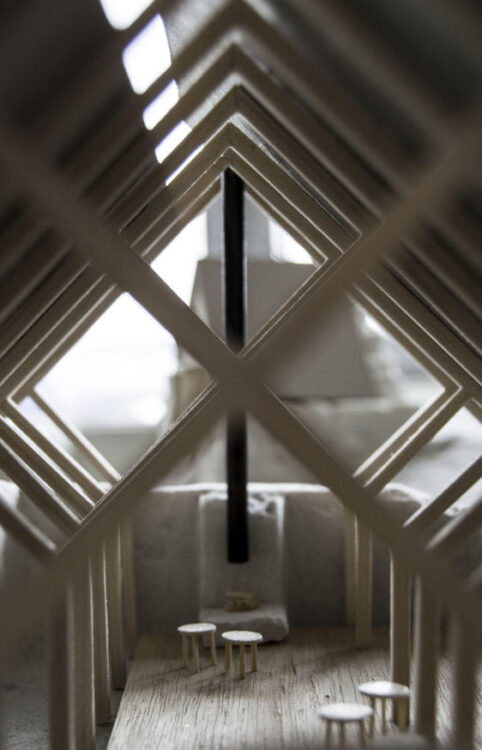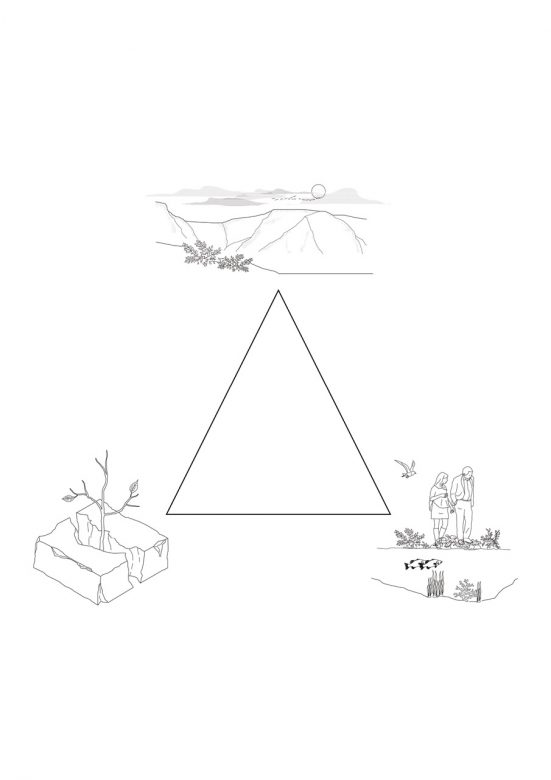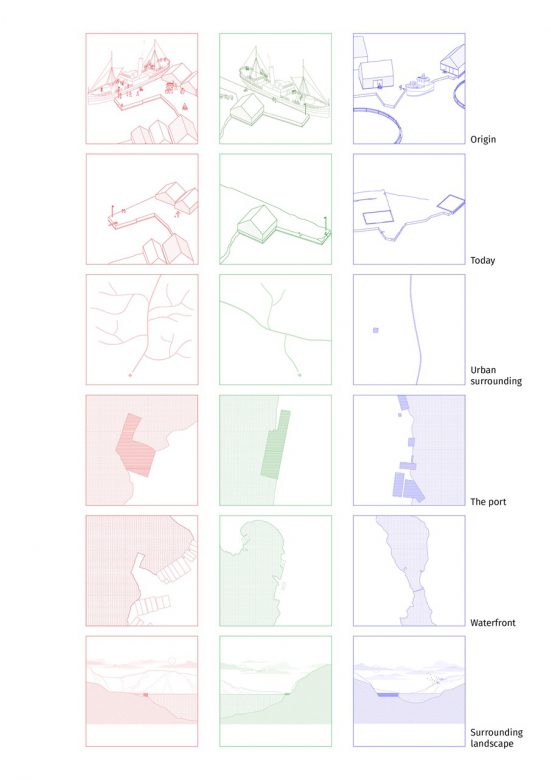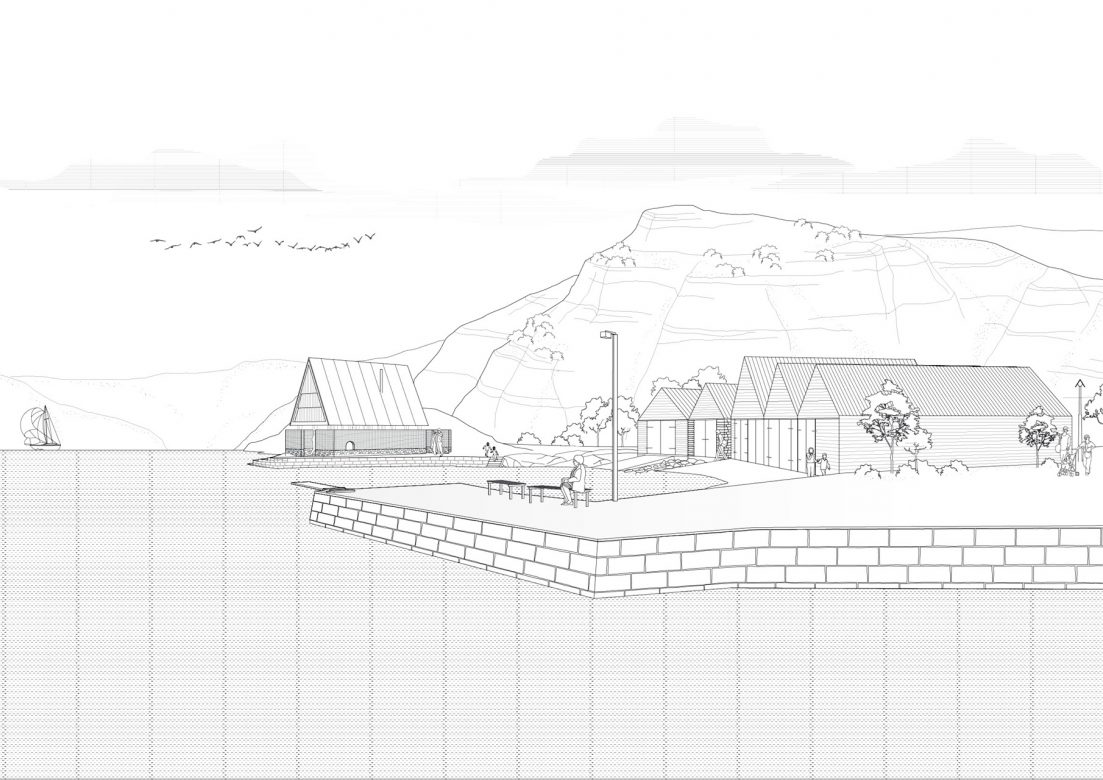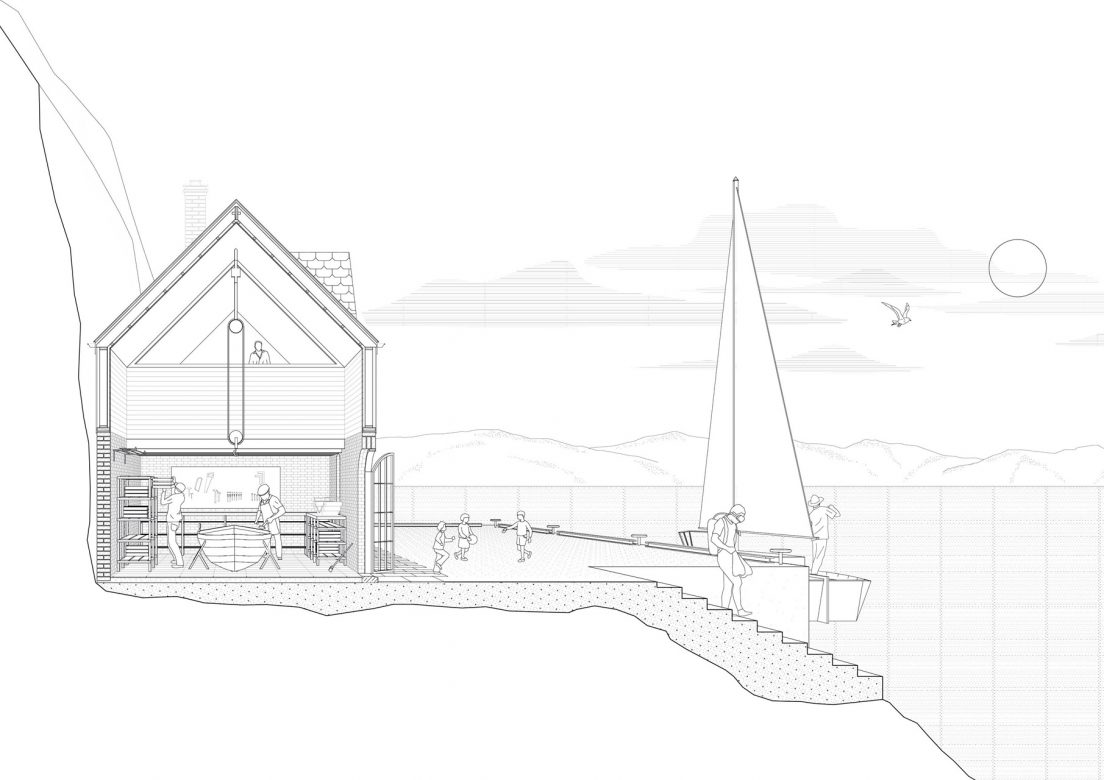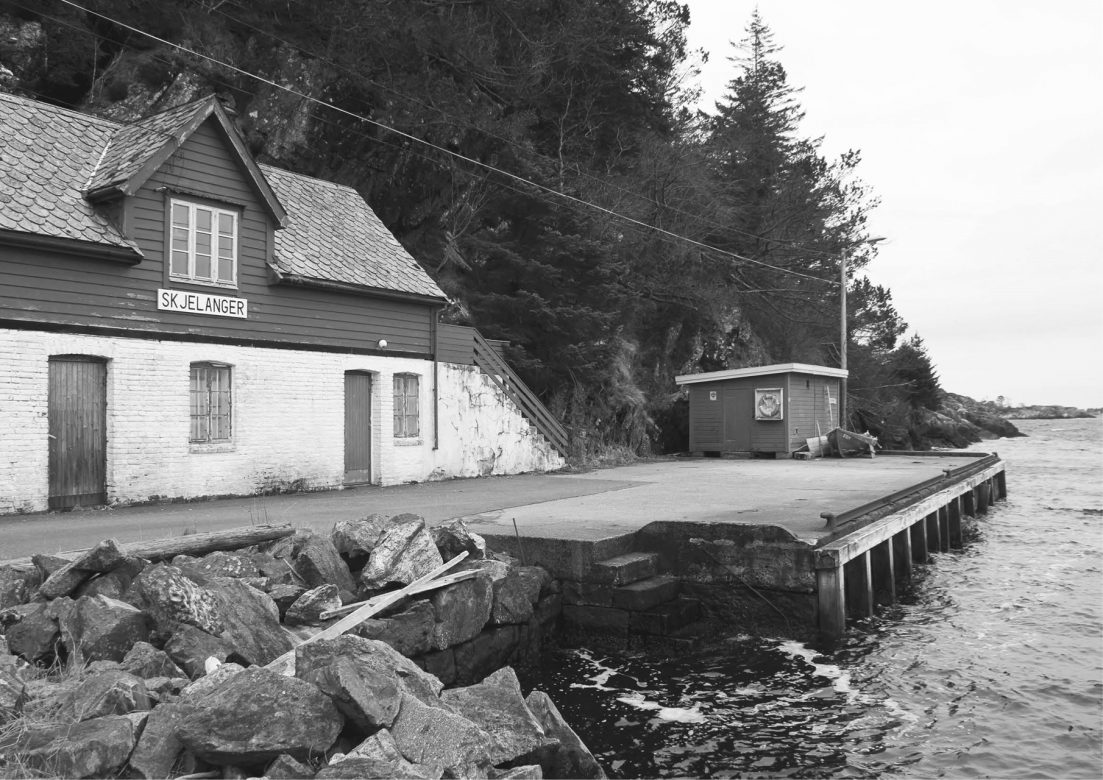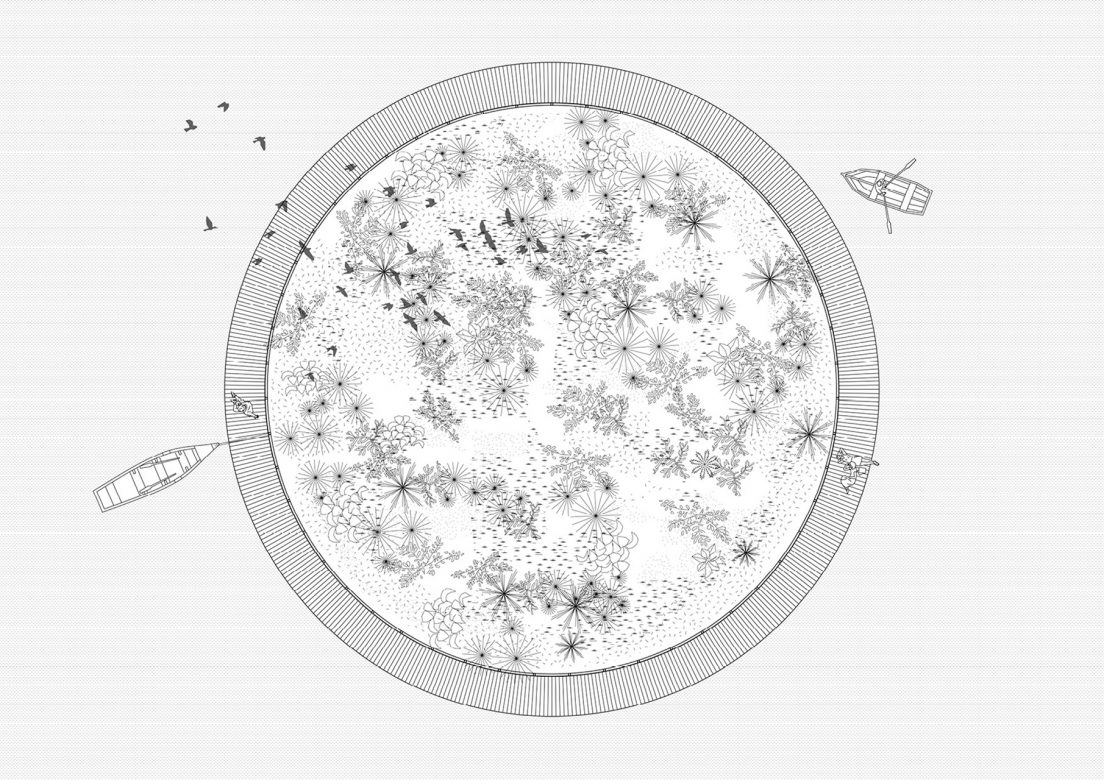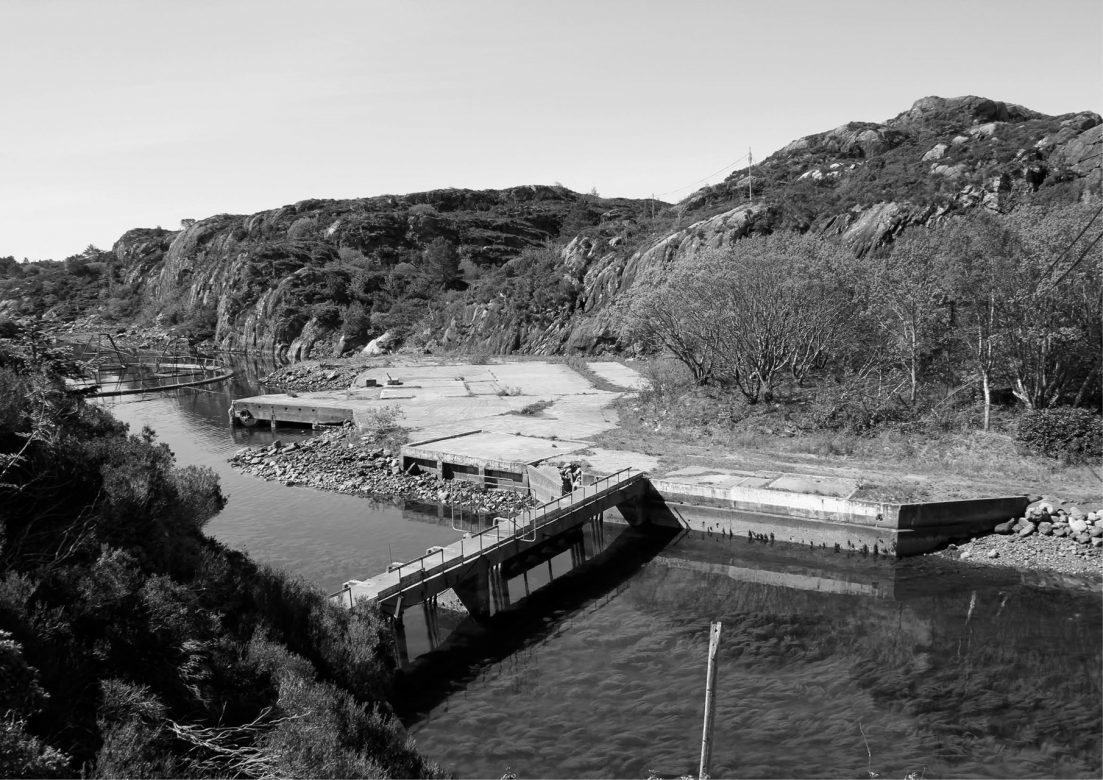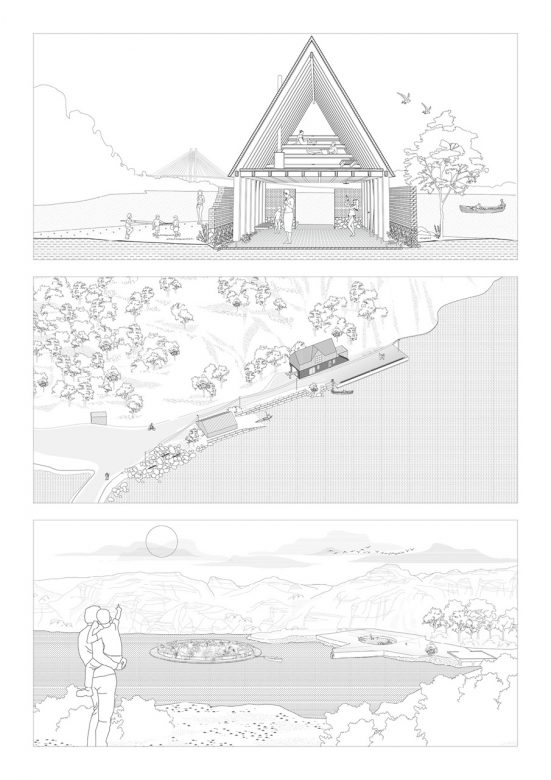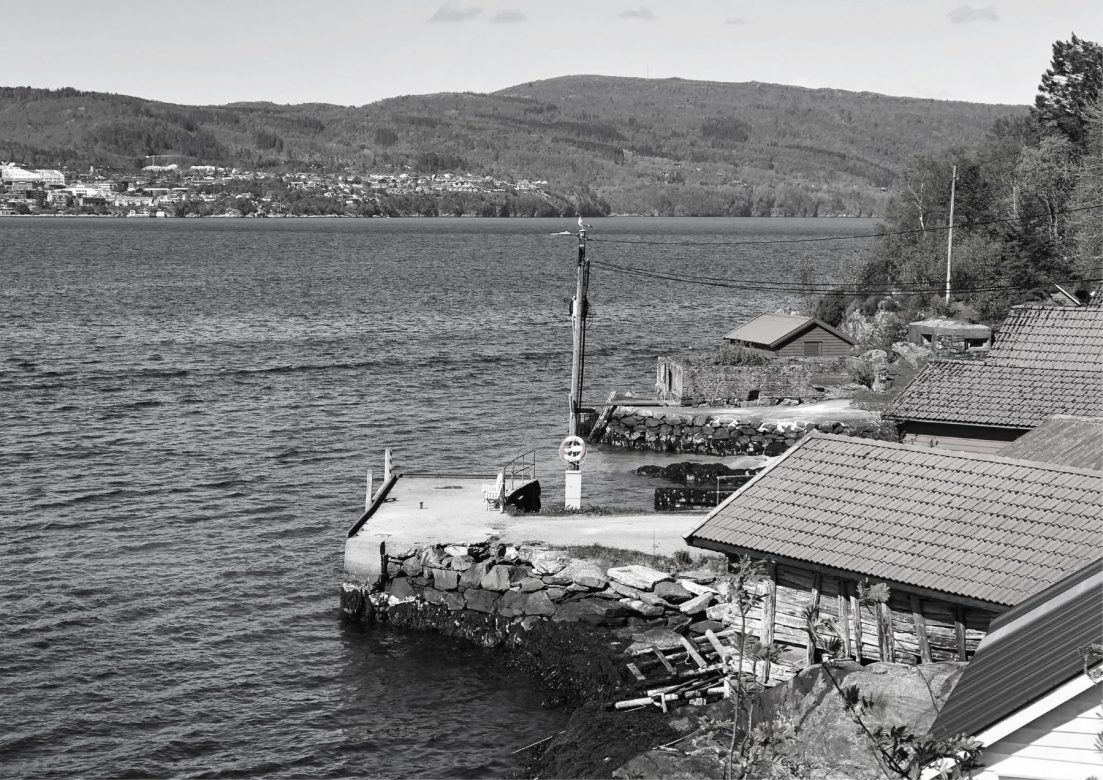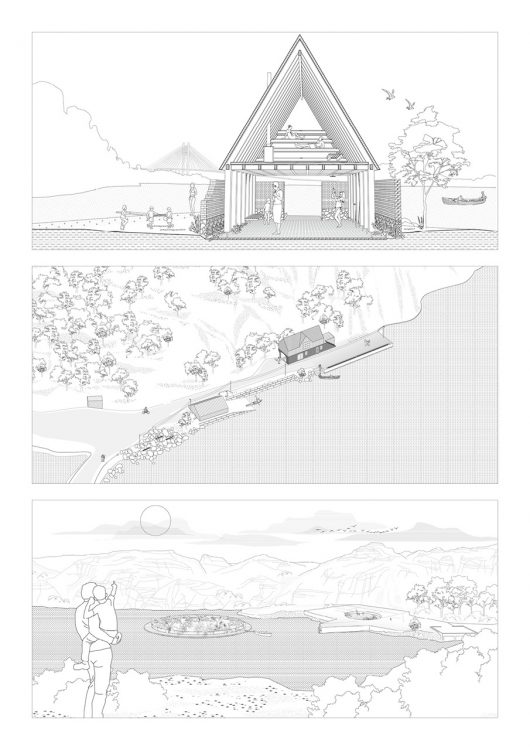
Liminal Landscapes uses the tools of time and space to investigate liminality through the metaphor of a port. Human productivity has been shaping the environment for centuries, leaving behind scars in the landscape. In this project the countless docks along the Norwegian coastline are representing the built environment.
Three case studies illustrate three different methods of approaching unproductive infrastructure. The liminal state of the ports has the dormant potential of being transformed. In this diploma project three different approaches are suggested. These propositions make a gradual variation going from a careful addition, over a renovation, to the method of subtracting. We believe that the port has a strong impact to its surrounding landscape. It is crucial to understand the original purpose and the historical importance of the place. All of these aspects are woven together in the liminality of a port. Therefore our intentions, as architects, will interact with these places through a respectful approach. In Tellevik is a place that is liminal in space. A bathing house will be balancing between the water and the land; acting as a lantern for the local community and the visitors. Skjelanger is liminal in use; a flexible ownership will allow the place to open up for the public. The port of Veløyna is liminal in time; a dialogue between the concrete of the port and the landscape reveals potential of the reclaim of nature through time.
The interventions touch up on the surfaces of ownership, appearance and the voice of the landscape. The ultimate goal is the challenge and change the attitude towards how the environment has been claimed.
